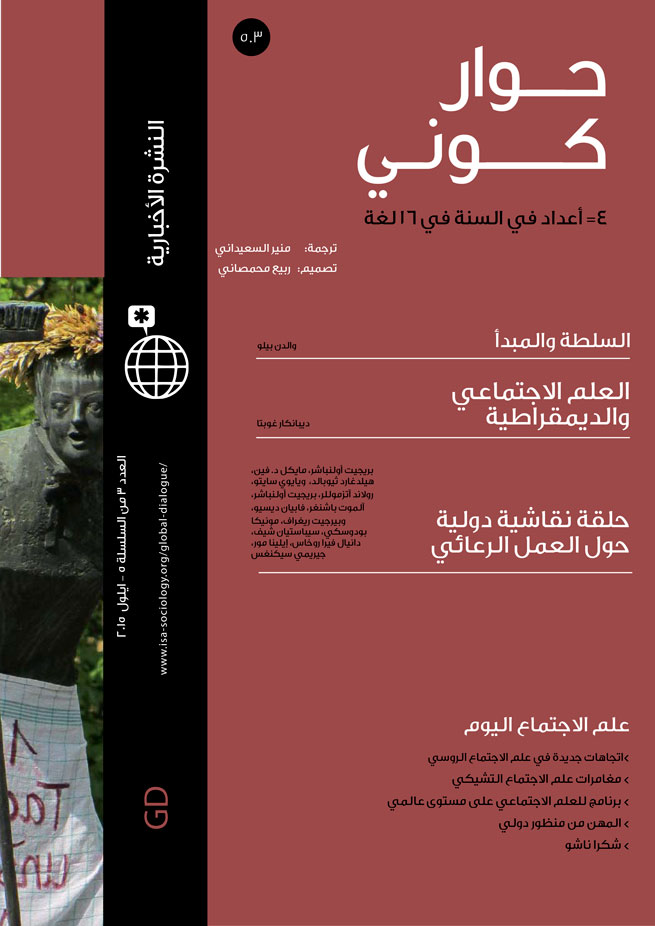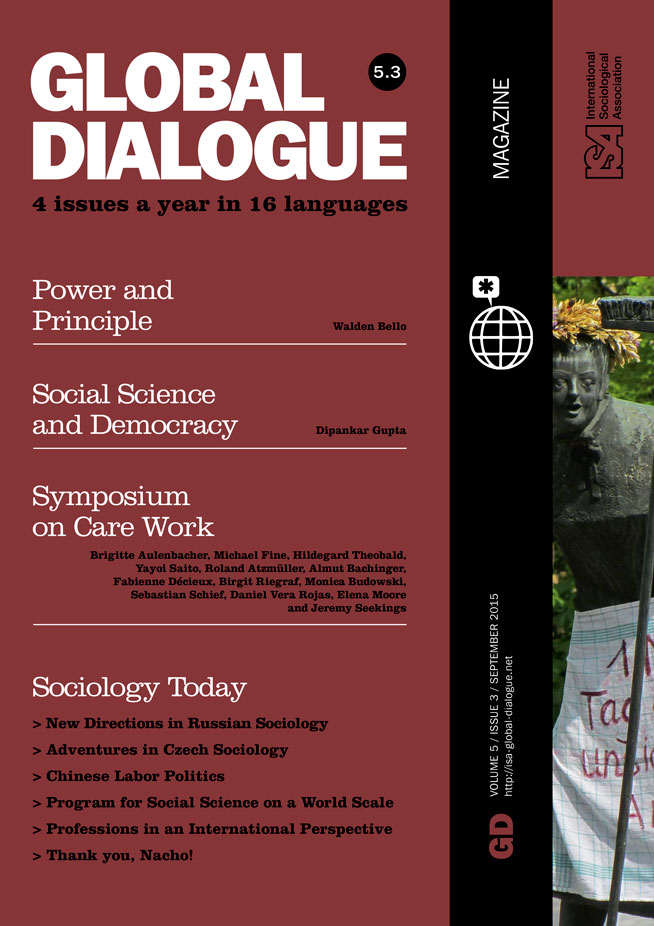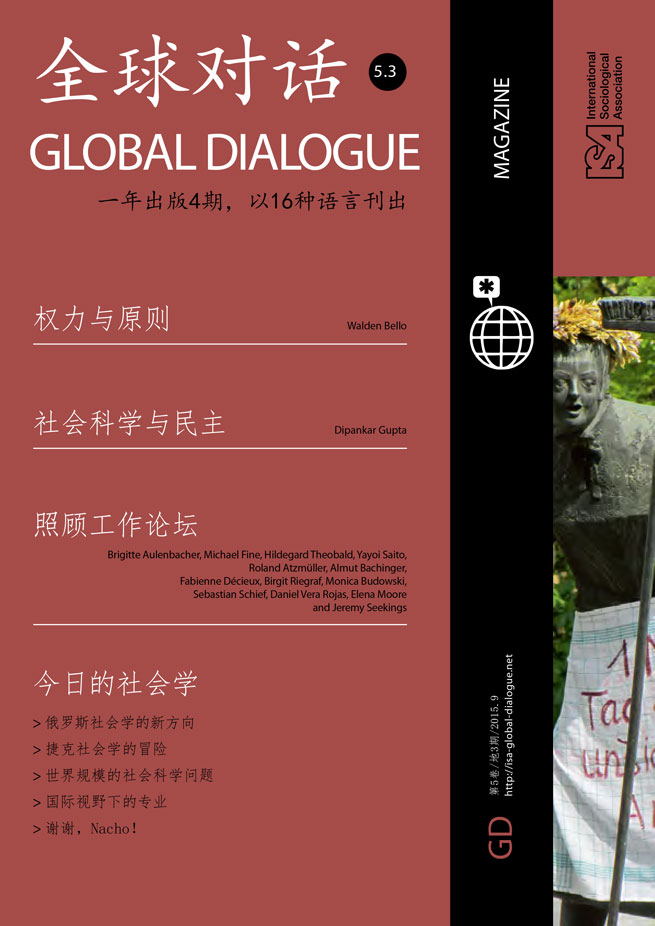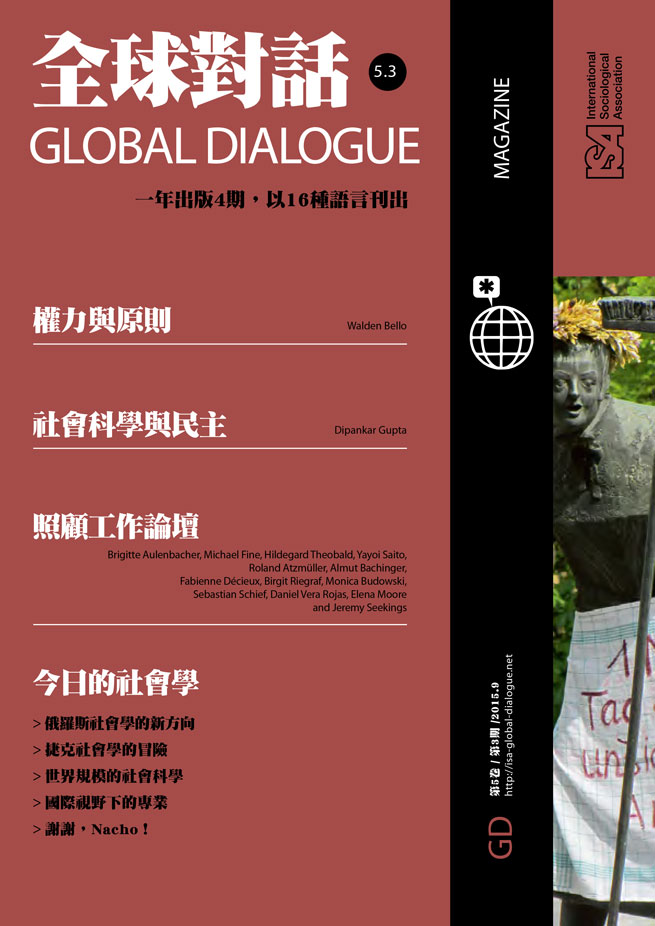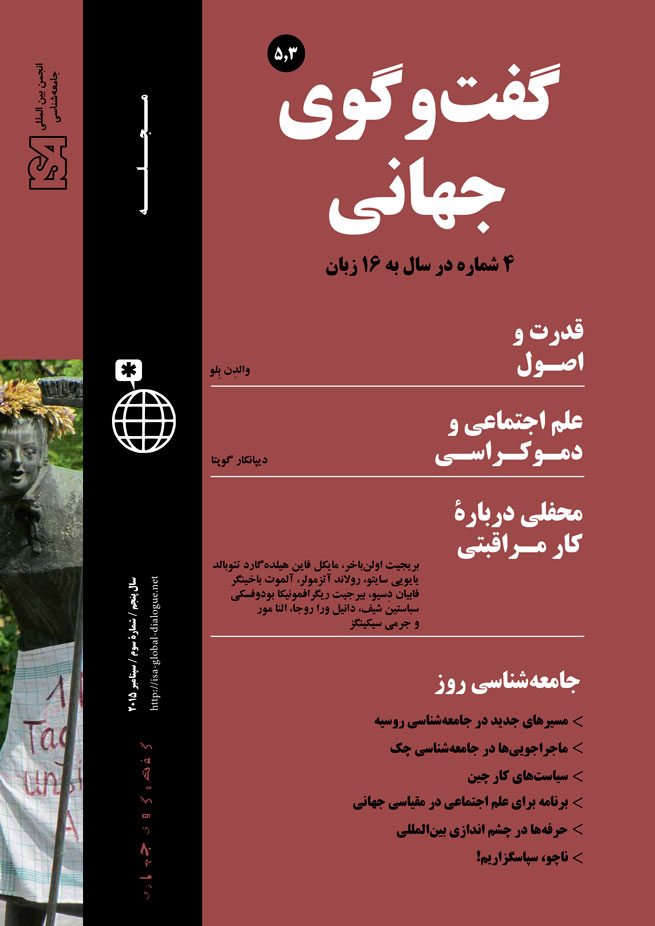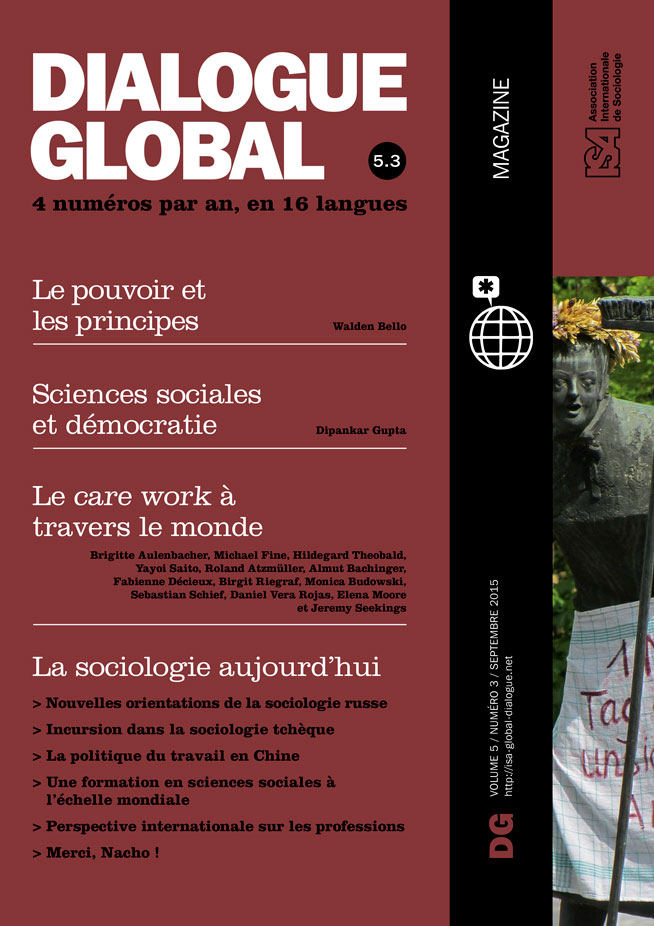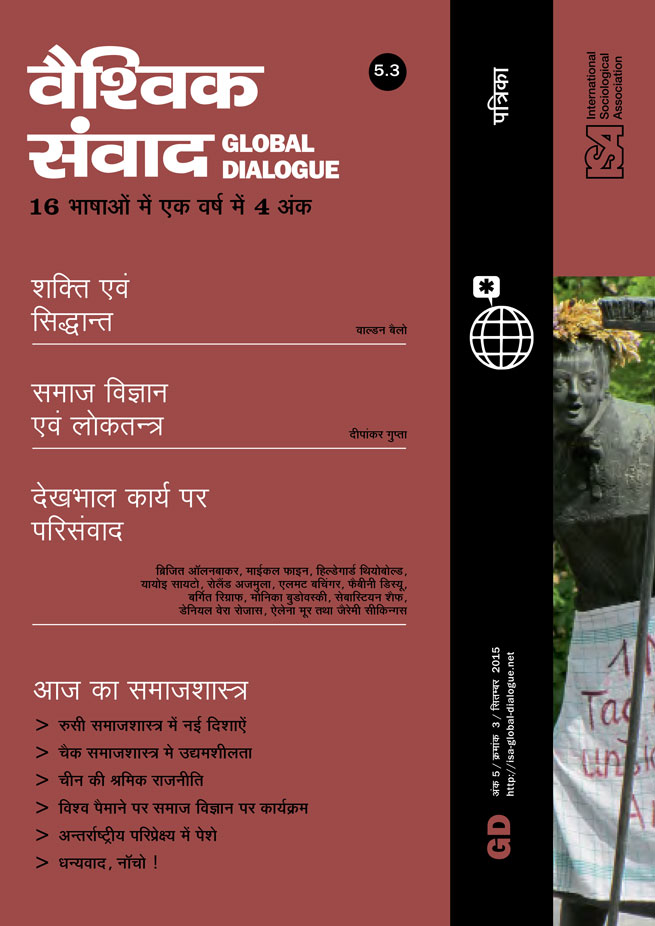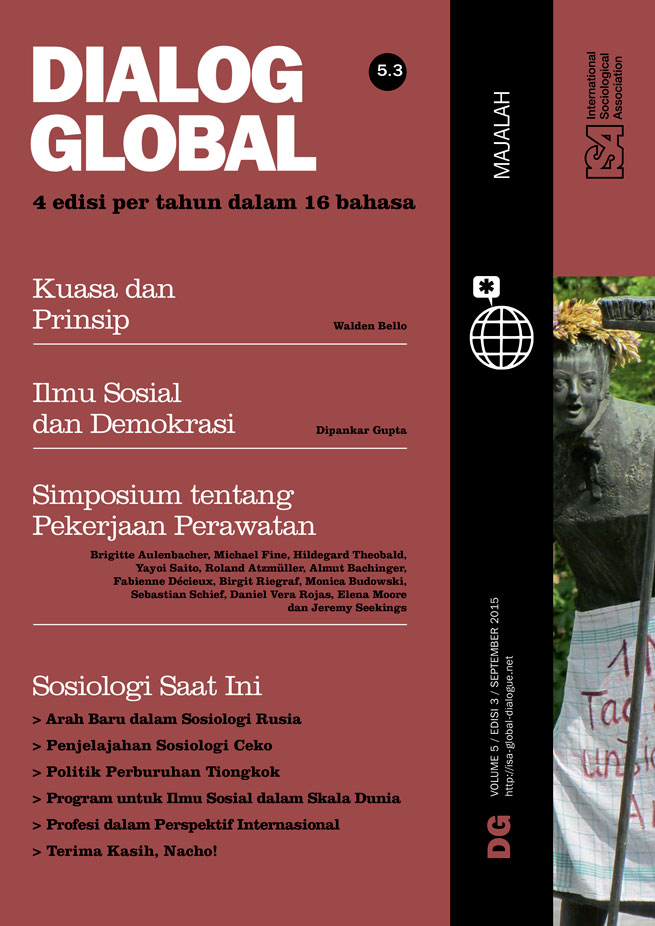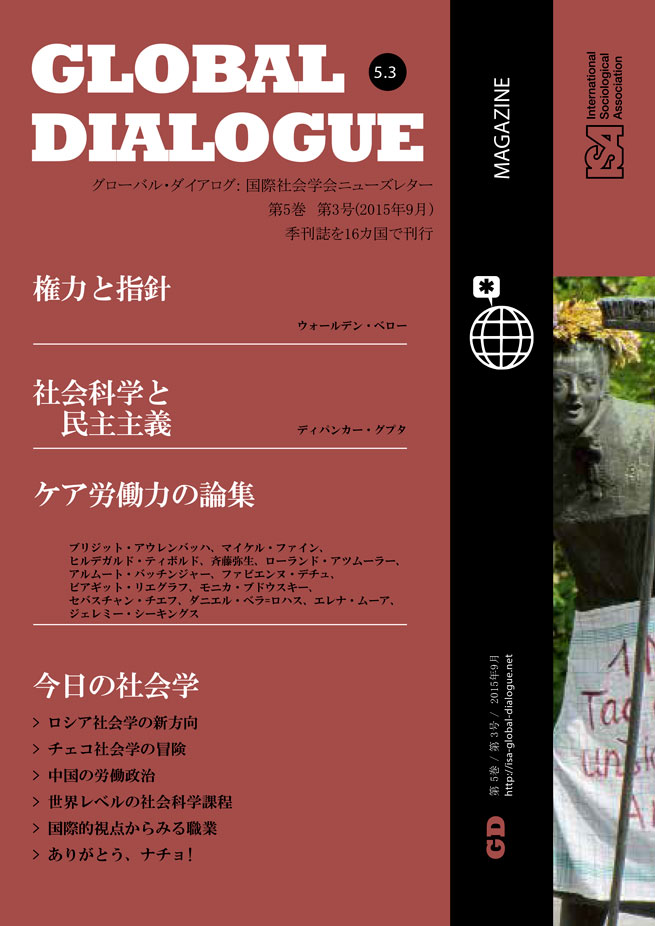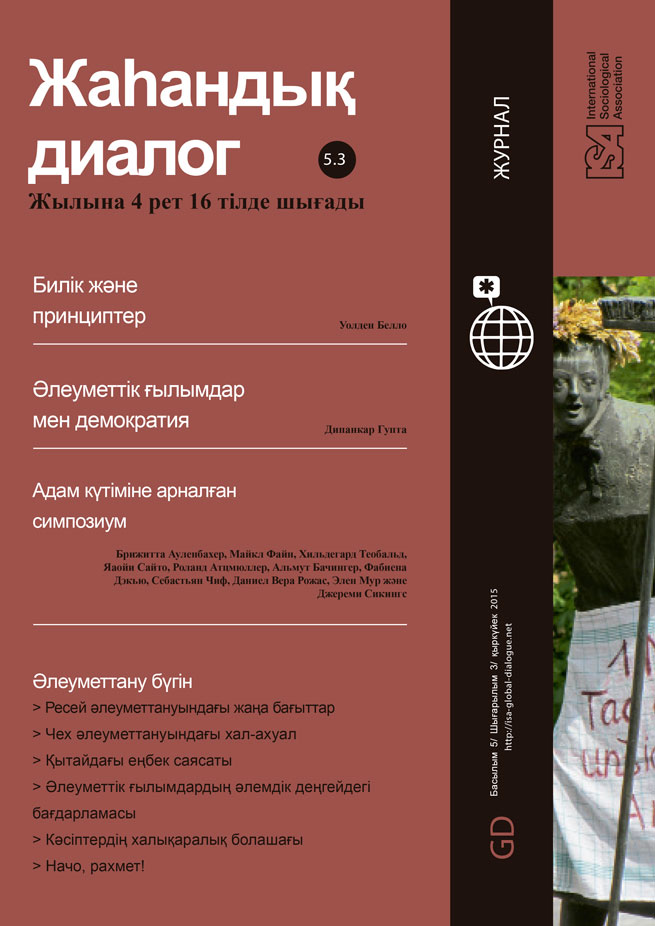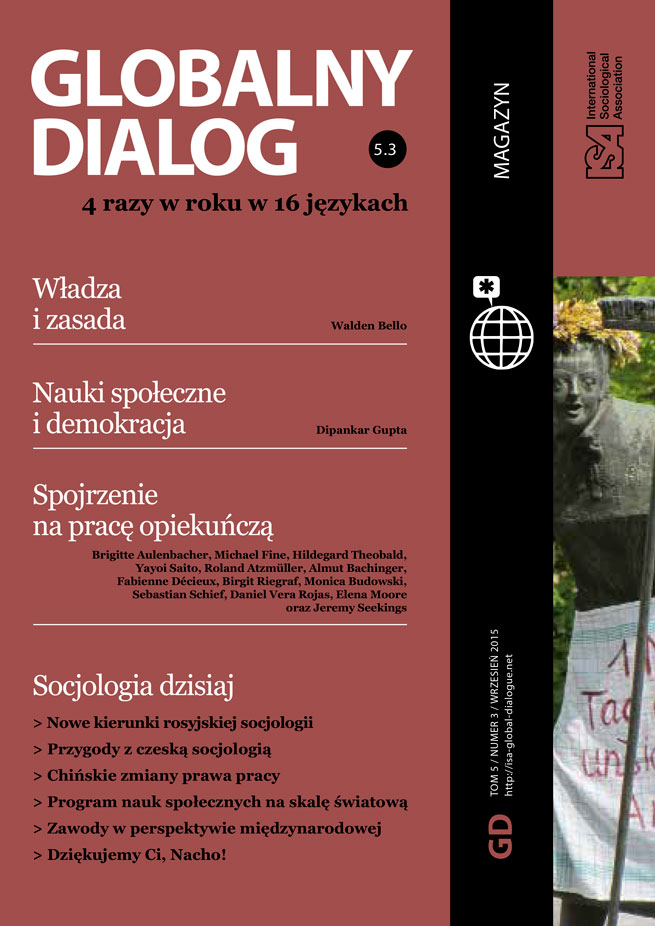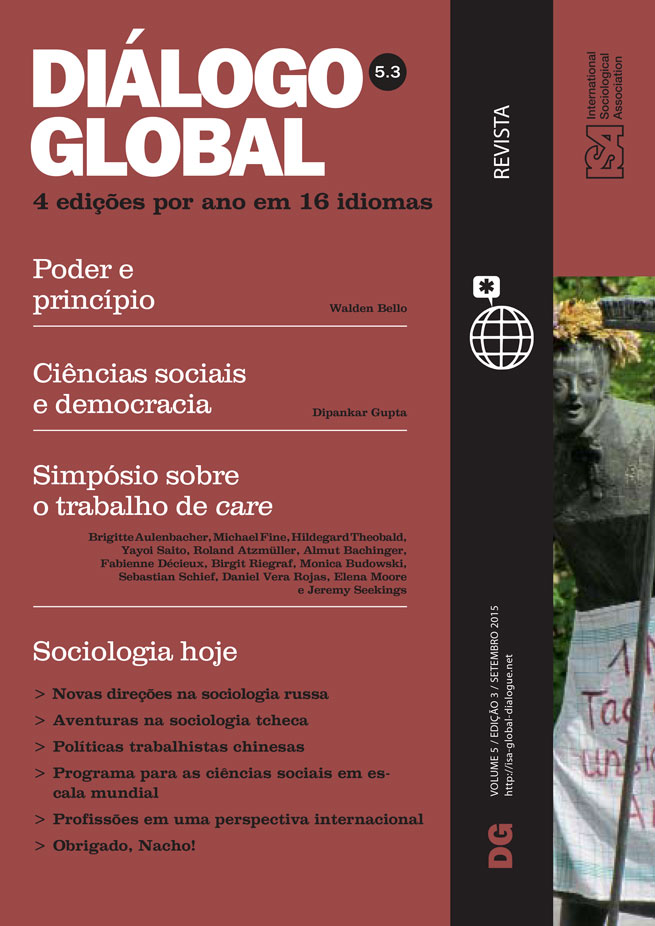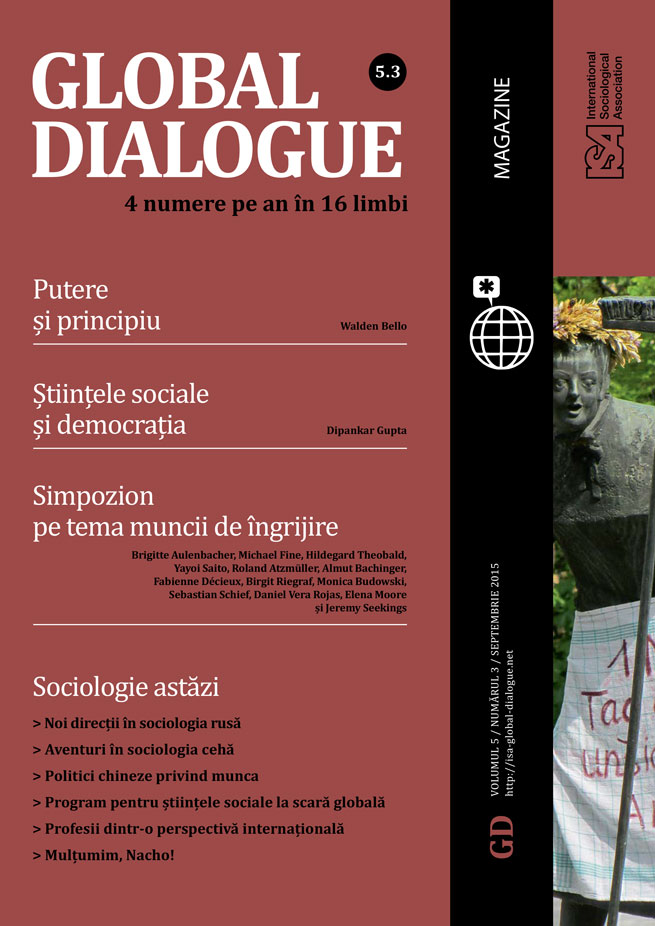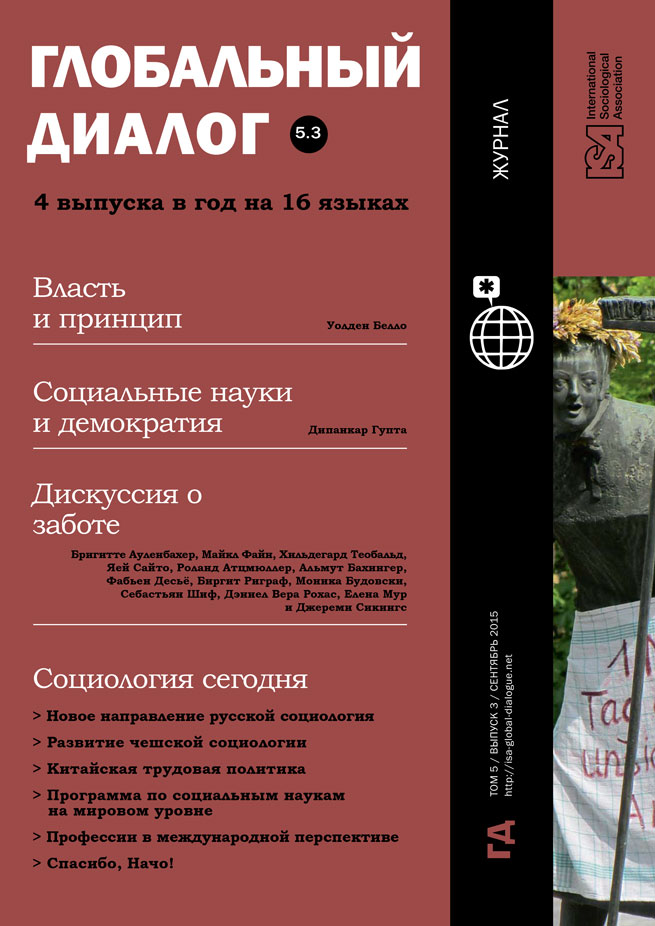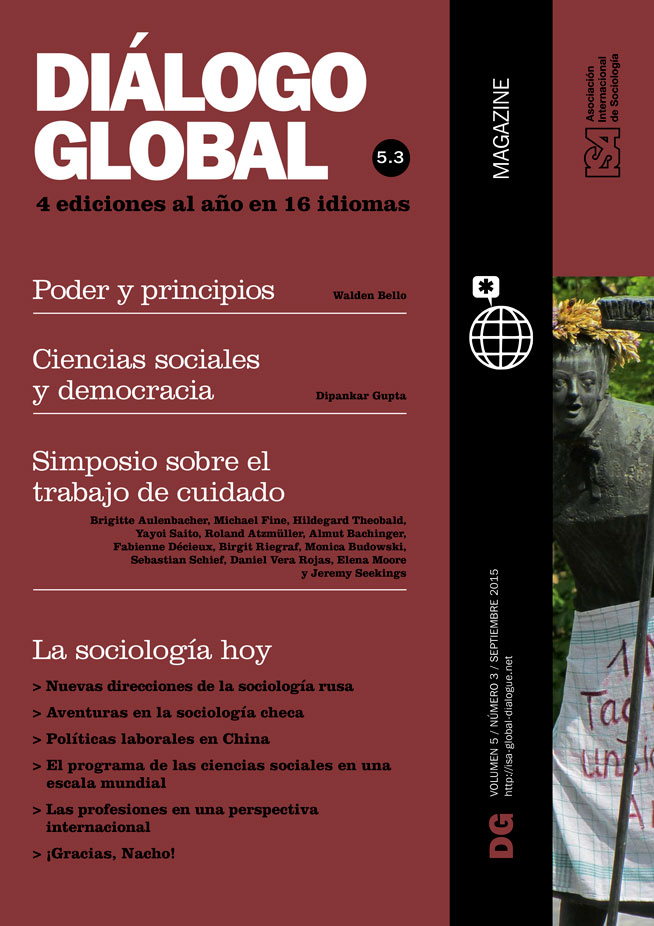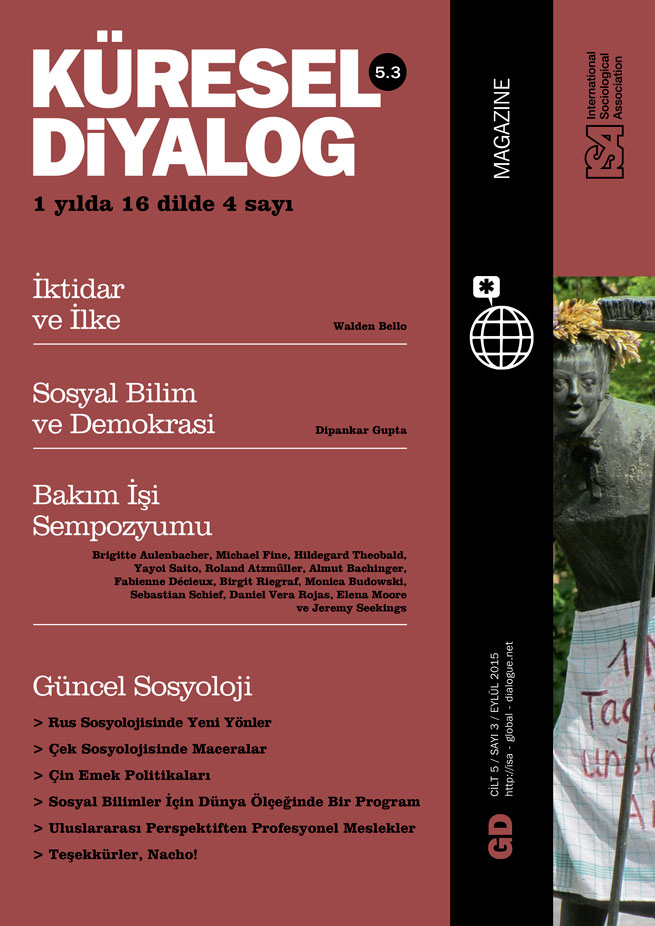Read more about New Directions in Russian Sociology
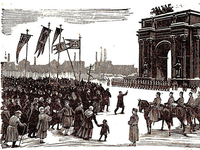
Photo Essay: Socialist Ideals in Early Soviet Architecture
by Natalia Tregubova and Valentin Starikov
August 08, 2015
The Public Sociology Laboratory is an independent research group of leftist scholars and activists in St. Petersburg. Some of us took part in student protests against the commercialization of education, and the corruption and profanation of science in the sociology department at Moscow State University in 2007-2008, while others had participated in left-wing political and artistic associations while studying social science at different universities. In 2011, we decided to create a collective of committed scholars who would explore political protest in our depoliticized society. After conducting large-scale research during the “For Fair Elections” movement in Russia in 2011-2012, we began studying the Ukrainian Maidan and Anti-Maidan movements in Kyiv, in collaboration with the Center for Independent Social Research (CISR). Here, we focus on three issues: first, the context for the development of our project; second, what it means for us to engage in “public sociology”; third, the limitations that institutional milieu imposes on our activity, and how these limitations might be overcome.
Russian Sociology: Between Instrumentalism and Professionalism
During our professional socialization, three types of consensus have taken shape in the discipline in Russia, leading to two types of sociological knowledge: instrumentalist, and professional. The first can be seen in the Institutes of Sociology of the Academy of Sciences, which lack structural autonomy, being the home of political loyalists, and in those sociology departments that are tacitly privatized by university administrations. In these institutions, scholars must either deal with the logic of the market (both the market of applied studies for commercial needs and the sale of diplomas), or participate in pseudoscientific studies of “The Middle Class,” “Transition,” “The Russian Time of Troubles,” etc.
In reaction to this kind of “official” or “instrumental” sociology, an “autonomist” faction took shape, arguing that “true” professional social science should disavow political commitment. From this perspective, both types of instrumental sociology are unprofessional, not only because they lack autonomy in Bourdieu’s sense, but also precisely because of their commitment to clients.
Our opposition to the instrumentalist consensus served as the platform for our protest against the policy of the Sociology Department of Moscow State University, but we also disagree with the apolitical consensus of “professionals.” Cooperating with activists who often were much more reflexive than professional scholars has gradually moved us away from doctrinaire and elitist perspectives, as well as from methodological dogmatism. Sociologist Victor Vakhshtayn, one of the most consistent proponents of the “autonomist” perspective, contends that “scientific” language in Russia has been replaced by “neo-Soviet” and “anti-Soviet” languages, and that to professionalize Russian sociology it is necessary to establish an “uncommitted” science.[1] Vakhshtayn sees sociology’s mission as the “production of knowledge for knowledge’s sake”; any politicization of social science, he argued, would be destructive of scientific rationality.
We believe that this perspective is not, as Vakhshtayn claims, a commitment to “value free” science. To the contrary, we believe this position is ideological in the sense most central to the post-Soviet neoliberal order: it reflects an ideology of depoliticization and common sense driven by disappointment in politics, the stigmatization of the public sphere, justifying an escape to private life. Vakhshtayn’s generation has inherited this ideal of “pure knowledge” from their teachers – advanced “critics of bourgeois sociology” for whom the struggle for rigorous sociological knowledge was inspired by a need to determine the causes of the Soviet empire’s fall, rather than by any deep-seated aspiration for non-commitment. They treated sociology as a tool for self-actualization of society. However, in the context of depoliticization, this ideal of theoretical depth was transformed into fetishizing “pure knowledge.”
When Russian society began to be politicized during the 2011-2012 anti-Putin protests, Maidan and the War in the Ukraine, professional sociologists, following their audience, also had to turn their attention to protests. However, lacking experience in scientific reflection on politics they were doomed to either reproduce ideological clichés, or artificially place the reality of the protest into pre-established theoretical frameworks.
What Do We Mean by Public Sociology?
If the generation of the teachers of “professionals” was inspired by tragic experiences of social change in the 1980s, and if “professionals” themselves were inspired by existential problems of society that led to a retreat into the realm of private life, then depoliticization itself became our existential problem, especially when our friends, the scientific environment and society, criticized our activism. So that is how we came to study depoliticization in the framework of the changing relations between public and private spheres.
Moreover, the investigation of the public sphere has prompted us to discuss our results with the very people we are studying, that is with emerging publics. Thus, we are now planning a conference with local civic activist groups which emerged during the protests of 2011-2012, submitting our study to activists, in the hope that we can initiate discussion and establish a network among these groups.
We believe that the preoccupation with social and political problems requires exploring and understanding social theories from a new angle. Can we understand Durkheim’s project without being concerned with anomie? Can we explore theories of publicity from Arendt and Habermas to Fraser, Negt and Kluge without referring to the poverty of a life restricted to the private sphere? Our Manifesto states, “The main objective of the Laboratory is to combine a professional approach to social research with public engagement. The scientific questions that the Public Sociology Lab raises relate to relevant social problems, linked to the political situation in Russia and all over the world. Moreover, the mission of the Laboratory is to combine social engagement and civic responsibility with theoretical and existential depth, to resolve problems of ‘grand theory’ through empirical study of social problems. For example, the study of political mobilization during the latest protests allows us to pose the problem of loneliness and solidarity, individualism and solidarity.”
Barriers to Public Sociology in Russia
But is it easy to adhere to this position in contemporary Russia? A few obstacles threaten our project’s very existence. We are caught between “professionals” and “instrumentalists” – as well as between large universities and the market in grants. Scientific institutions, whether the retrograde Academy of Sciences or “advanced” smaller universities, create rigid hierarchies and career rhythms that serve their own reproduction. This logic dissolves collaboration and solidarity by atomizing and subjugating researchers. This is why we have sought a foothold in CISR, Russia’s most independent, grassroots and professional sociological center. In turn, the grants market is rapidly shrinking because of state repression against dissident scholars. For instance, the publication of our volume The Politics of the Apolitical, dedicated to political protests of 2011-2012, was one of the reasons state officials have tried to indict CISR as a “foreign agent.”
Thus, today we face a hostile environment. So far we have depended on the limited resources of a strong moral and political consensus within our group, on wider connections and on informal leadership. However, this is not enough to sustain our project. We believe that we must create an “International” of scholars and artists that will unite committed scientists and intellectuals in our own region to those around the world.
[1] See V. Vakhshtayn’s article in Global Dialogue, 2.3 and response from N.V. Romanovsky and Zh.T. Toshchenko in Global Dialogue, 2.5.
Public Sociology Laboratory, St. Petersburg, Russia <publicsociologylab@gmail.com>
This issue is not available yet in this language.
Request to be notified when the issue is available in your language.
If you prefer, you can access previous issues available in your language:
